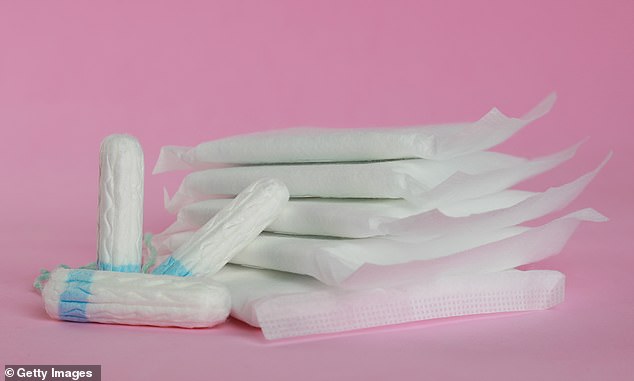FDA officially launches investigation into product used daily by millions of women amid fears it is linked to cancer



The FDA has officially launched an investigation into heavy metals in tampons.
The agency announced a two-pronged approach. A new study will be conducted to see whether the heavy metals in tampons are actually released during use. In addition, a review of older research will be outsourced to an independent group of researchers.
It is based on a shocking study from Berkeley that found heavy metals like lead and arsenic in 30 different tampons from 14 major brands. These chemicals have been linked to brain damage, kidney disease, miscarriage and cancer.
The agency officially launched the investigation on Tuesday, following an announcement last week by Sen. Patty Murray of Washington, who spearheaded the review.

Reviews have shown that tampons and other menstrual products, such as menstrual underwear, contain heavy metals

Sen. Murray announced the FDA’s decision to investigate the safety of tampons last week, ahead of the agency’s official press release. Sen. Murray previously sent a public letter to the agency urging this type of research
“The FDA is aware of concerns about tampon safety after a 2024 study found metals in tampons during lab testing. We want the public to know that before tampons can be legally sold in the U.S., they must meet FDA requirements for safety and effectiveness,” the FDA announcement said.
Tampons are currently regulated as medical devices. This means that before they are sold, authorities check them for absorbency, strength, integrity and whether they promote the growth of harmful bacteria.
It is not clear whether specific testing is done for heavy metals.
The approved products are used by millions of Americans – somewhere between 47 and 80 percent of women choose to use the products during their monthly period, research shows.
The FDA said the investigation will focus on answering questions not addressed by the Berkley study, published earlier this year.
“Although the study found that some tampons contain metals, no tests were conducted to determine whether metals are released during tampon use,” the agency said.
‘There was also no testing for the release of metals, their absorption into the vaginal wall and their detection in the bloodstream during tampon use.’
Berkeley’s study, published in July, found that all 30 tampons tested from 14 different brands contained 16 types of heavy metals, including lead, arsenic, chromium and copper.
The researchers declined to comment on which brands were tested, but did say they are all available at major retailers in the US, UK and parts of Europe.
It is unclear exactly how heavy metals end up in these products.
The Berkeley researchers pointed out thatCotton plants, used for the production of tampons, have been shown to absorb heavy metals from soil, pesticides, fertilizers and wastewater.
It is also possible that these chemicals have entered the products during the manufacturing process. In the factory, tampons are doused with chemicals to bleach, deodorize and disinfect the products.
Although no research has yet been done on the possible effects of exposure to heavy metals via tampons, a lot of research is being done on other forms of exposure to heavy metals.
That’s because manufacturers used heavy metals in the past for all kinds of products, from lead pipes to arsenic-dyed fabrics.
Patterns emerged when it was found that people who regularly ate, inhaled or came into contact with these chemicals were more likely to develop health problems such as delayed development, liver and kidney disease, dementia, miscarriage and cancer than people who were not exposed to heavy metals.
The Berkeley researchers wrote that the vagina, which is made of “highly absorbent tissue,” could theoretically absorb the heavy metals from the tampons if they are released during use.
If so, there may be a case of ‘systemic exposure’. The health effects of that exposure are unknown.




